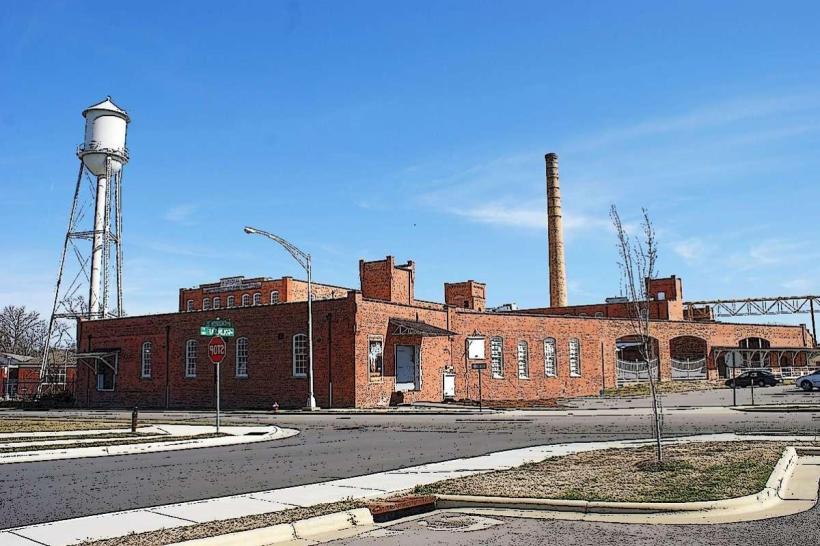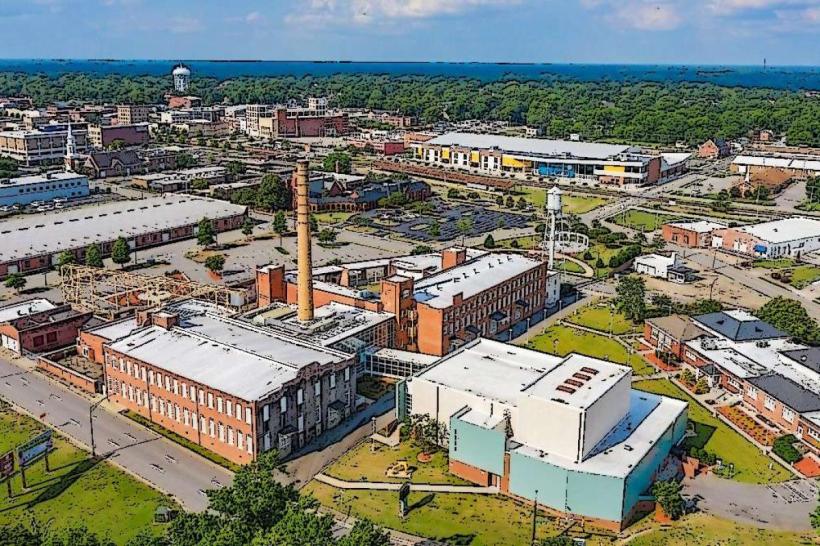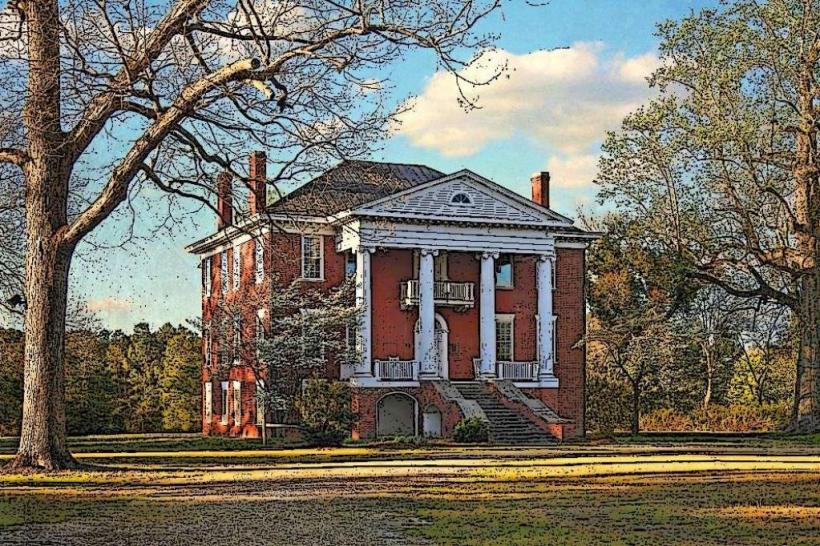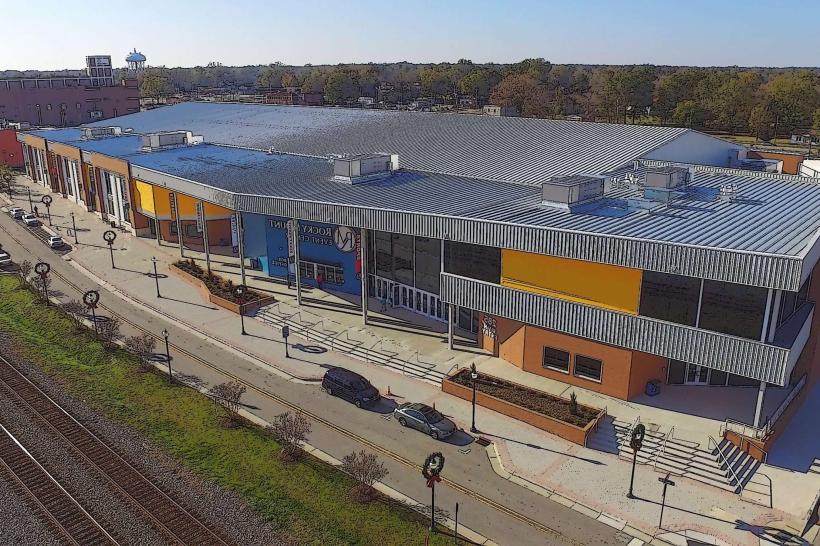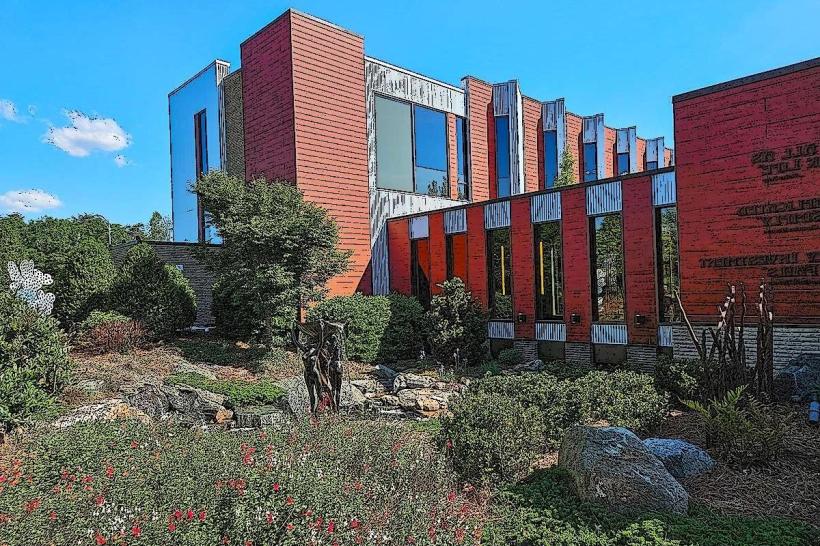Information
Landmark: Rocky Mount MillsCity: Rocky Mount
Country: USA North Carolina
Continent: North America
Rocky Mount Mills, Rocky Mount, USA North Carolina, North America
Rocky Mount Mills is a historic industrial complex located in Rocky Mount, North Carolina. It comprises a collection of former textile mill buildings situated along the Tar River.
Visual Characteristics
The primary structures are constructed from red brick, exhibiting a utilitarian industrial design. Buildings range from two to four stories in height. The complex features numerous large, multi-paned windows. Exposed brick and timber elements are visible in many interior spaces. The surrounding area includes the Tar River and associated green spaces.
Location & Access Logistics
Rocky Mount Mills is situated at 1100 Falls Road, Rocky Mount, NC 27804. It is approximately 1.5 miles west of downtown Rocky Mount. Access is via Falls Road, which connects to US-64 Business. Ample on-site parking is available in designated lots. Public transport options are limited; the closest bus stops are several miles from the site.
Historical & Ecological Origin
The original Rocky Mount Mills was established in 1818, making it one of the earliest industrial sites in North Carolina. It was a significant cotton mill operation. The site has undergone multiple expansions and rebuilds over its history. The Tar River provided the initial power source for the mill's operations.
Key Highlights & Activities
Visitors can explore the grounds and the exterior of the mill buildings. Several businesses, including breweries and restaurants, operate within the renovated mill structures. Kayaking and fishing are possible on the Tar River. Walking trails are present along the riverfront.
Infrastructure & Amenities
Restrooms are available within the operating businesses. Shade is provided by trees in the park areas and by the building structures. Cell phone signal (4G/5G) is generally good throughout the site. Food and beverage vendors are located within the renovated mill buildings.
Best Time to Visit
Daylight hours are recommended for exploring the grounds and riverfront. Spring (April-May) and Fall (September-October) offer moderate temperatures. Summer months can be hot and humid.
Facts & Legends
A notable historical fact is that the Rocky Mount Mills was one of the first textile mills in the South to utilize steam power in addition to water power, significantly increasing its production capacity in the mid-19th century.
Nearby Landmarks
- Battle Park (0.8km East)
- Rocky Mount Arts Center (1.2km East)
- Golden East Mall (3.5km Southwest)
- Nash County Historical Museum (1.8km East)

